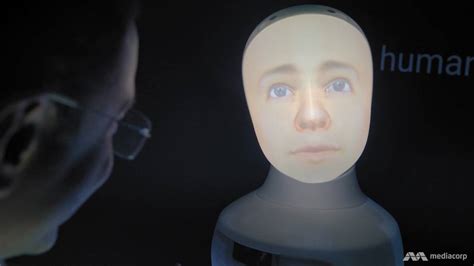GEN C AND ARTIFICIAL INTELLIGENCE
“If you give corporations and armies the technology to start messing with our DNA, to start messing with our brains, they may amplify certain human qualities that they need, like discipline … meanwhile, they don’t need other human qualities like compassion or artistic sensitivity or spirituality.”
Yuval Noah Harari[1]
“ Imagine not remembering the heights of the COVID-19 pandemic, or driving, or using cash. Well, if Bank of America’s right, that’s the future awaiting the youngest in society today: Gen C.
Born after 2016, Gen C is already 700 million strong and bound to reach 2 billion by 2025, according to the bank. And while that will make it ultimately smaller in size than the oft-discussed Gen Z, the analysts wrote that Gen C is positioned to become the first ‘to live in harmony with technology amid ubiquitous connectivity.’ What does that mean? ‘A cashless, shopless, driverless, potentially collegeless generation as they change attitudes to money, work, mobility and education in the advent of new disruptive technologies,’ the Bank of America analysts wrote.
Also, Gen C could be the first generation to ‘cheat death’ and achieve immortality and live in a net zero world,’ they added.”[2]
These are indeed crazy times!
But all the things today that wrap us around the emotional axle: geopolitical friction, domestic political infighting, socio-cultural upheavals, the collapsing stock market, climate change, and the power of social media platforms, Twitter among them, will—in all likelihood—mean very little to Generation C.
Last week, (Jun 9, 2022), I received an e-mail message from my youngest daughter, Bethany Curtis, containing a beautiful picture following Eden Grace’s kindergarten graduation. Eden is her oldest child. The photograph showed the three of them—Bethany, my son-in-law Ryan, and a beaming Eden Grace between them—standing outside the charter school. I called Bethany to congratulate Eden (and tell them how great the three of them looked; both Bethany and Ryan have been dieting).
Eden Grace is growing up way too fast.
Eden is also among the first entrants of the Gen C cohort.
As I talked to Bethany on the cellphone, I sat alone in our car. Ima was inside a local Trader’s Joe, picking up unsweetened tea and sugarless chocolate ice cream bars. On the back of my arm is a Libre 2 glucose monitoring device. Both Ima and I are on a strict Keito diet—me by necessity driven by excessively high blood pressure and AIC numbers, Ima by choice and sympathy.
The gap separating Eden Grace and I is much wider than our age disparity: her world—as well as the rest of the Gen C generation—will be so different as to defy comparison. Automated, connected devices and the world of screens—for better and worse—will be a part of her decisional and emotional DNA from day one. (I can still remember seeing my first color television, my first flush toilet and indoor bathtub, my first non-party-line telephone, my first computer, my polio shots, my first Walkman, my first encounter with an Afro-American, my first air conditioner, and being brought up in a small rural midwestern community where you could keep your doors unlocked at night without fear).
The world of my childhood—when I was Eden’s age—is gone forever. Technology, and its future exponential growth, will allow Eden Grace to skip the entire learning curve I (and my “Baby Boomer” cohort) went through.
I spend lots of time thinking about the world Eden is walking into. My trilogy of Christian fiction novels, set fifteen to twenty years in the future, portray a world where Eden and her Gen C cohort will be in their late twenties.
A completely different world.
Over the past several days, a couple of news stories caught my attention that may provide a glimpse into just one facet of Eden Grace’s future world.
The first was a flurry of media reports concerning the public claims of Google AI researcher Blake Lemoine that LaMDA—a large language model designed to converse with human beings—was “sentient” (able to feel or perceive things).[3] Lemoine based his opinion on a series of bot answers to a list of questions and determined—based on his own Christian beliefs—that the machine had a “soul,” was reasoning on the level of a pre-teen, and should be entitled to legal representation. The claims were denied by senior Google officials and Lemoine was placed on administrative leave.
Such issues are hardly new. They date back to the chatbox ELIZA in the 1960s, and have embroiled the likes of Elon Musk, OpenAI CEO Sam Altman, and former Google ethical team co-lead Timnit Gebru (dismissed from the company in 2020 after warning of the future danger posed by large language models).[4]
My point here is not to defend or undermine Lemoine’s views; it is simply to point out that we are at the beginning stages of this “general” AI debate and that Gen C in the future—including my granddaughter Eden Grace—will face a full range of decisions, far more complex and far-reaching in scope.
The second article that caught my attention in this regard was a legal case—now making its way through the federal courts—whether AI can be legally determined to be an “inventor.” Current intellectual property protocols require a “human” inventor to file for a patent.[5] Within the past two weeks, a three-judge panel at the U.S. Court of Appeals for the Federal Circuit (in Washington D.C.) heard oral arguments in a case brought by computer scientist Stephen Thaler. The inventions at question are relatively minor—AI-assisted designs for beer containers—but the legal and technological implications are profound: a negative finding could chill the pace of AI-assisted innovations particularly in the pharmaceutical and life science areas. At the heart of the matter is how courts and the patent system will deal with the techno revolution and innovation.
A decision is expected by the end of the year.
As a final note, it will be left to Eden Grace, and her fellow Gen C cohort, to decide the appropriate social, technological, legal and spiritual parameters for life, meaning and consciousness in a future world saturated with AI-enhanced entities.
I have the utmost confidence in Eden, and her ability to draw on God’s wisdom, in making such weighty choices.
[1] Arion McNicoll, “AI will deepen divisions, say Yuval Noah Harari and Slavoj Zizek,” The Week, Jun 13, 2022. Harari’s remarks were made this month during a panel discussion at the “HowThe-LightGetsIn,” festival at Hay-on-Wye (Wales). Those of you familiar with my writings know I like to quote Harari, who has carved out a role as one of today’s most prominent techno-futurists.
[2] Declan Harty, “Bank of America’s 50 stocks to buy now as a ‘new world order’ takes place,” Fortune, Jun 9, 2022.
[3] In addition to Lemoine’s article in the Economist, see among others: Kelsey Vlamis, “Google engineer thinks artificial intelligence bot has become sentient,” Business Insider, Jun 11, 2022; Toby Walsh, “Labelling Google’s LaMDA chatbot as sentient is fanciful. But it’s very human to be taken in by machines,” The Guardian, (Opinion), Jun 14, 2022; Khari Johnson, “LaMDA and the Sentient AI Trap,” WIRED, Jun 14, 2022 (the present debate about whether AI has a “soul” is a distraction from real issues facing future AI researchers); Noor al-Sibai, “OpenAI Chief Scientist Says Advanced AI May Already Be Conscious,” The Byte, Feb 10, 2022 (tweeted claims of Ilya Sutskeveer that “today’s large neural networks are slightly conscious”); Pranshu Verma, “The military wants to replace human decision-making in battle,” The Washington Post, Mar 29, 2022; and, Pranshu Verma, “This AI model tries to recreate the mind of Ruth Bader Ginsburg, Washington Post, Jun 12, 2022.
[4] Johnson, “LaMDA …”
[5] Jean Thilmany, “U.S. court will soon rule if AI can legally be an ‘inventor,’” VentureBeat, Jun 13, 2022.




